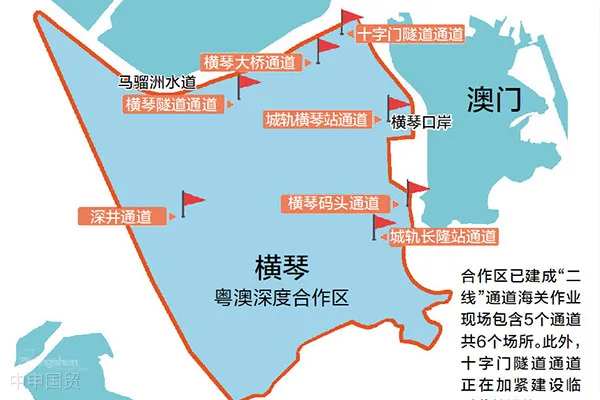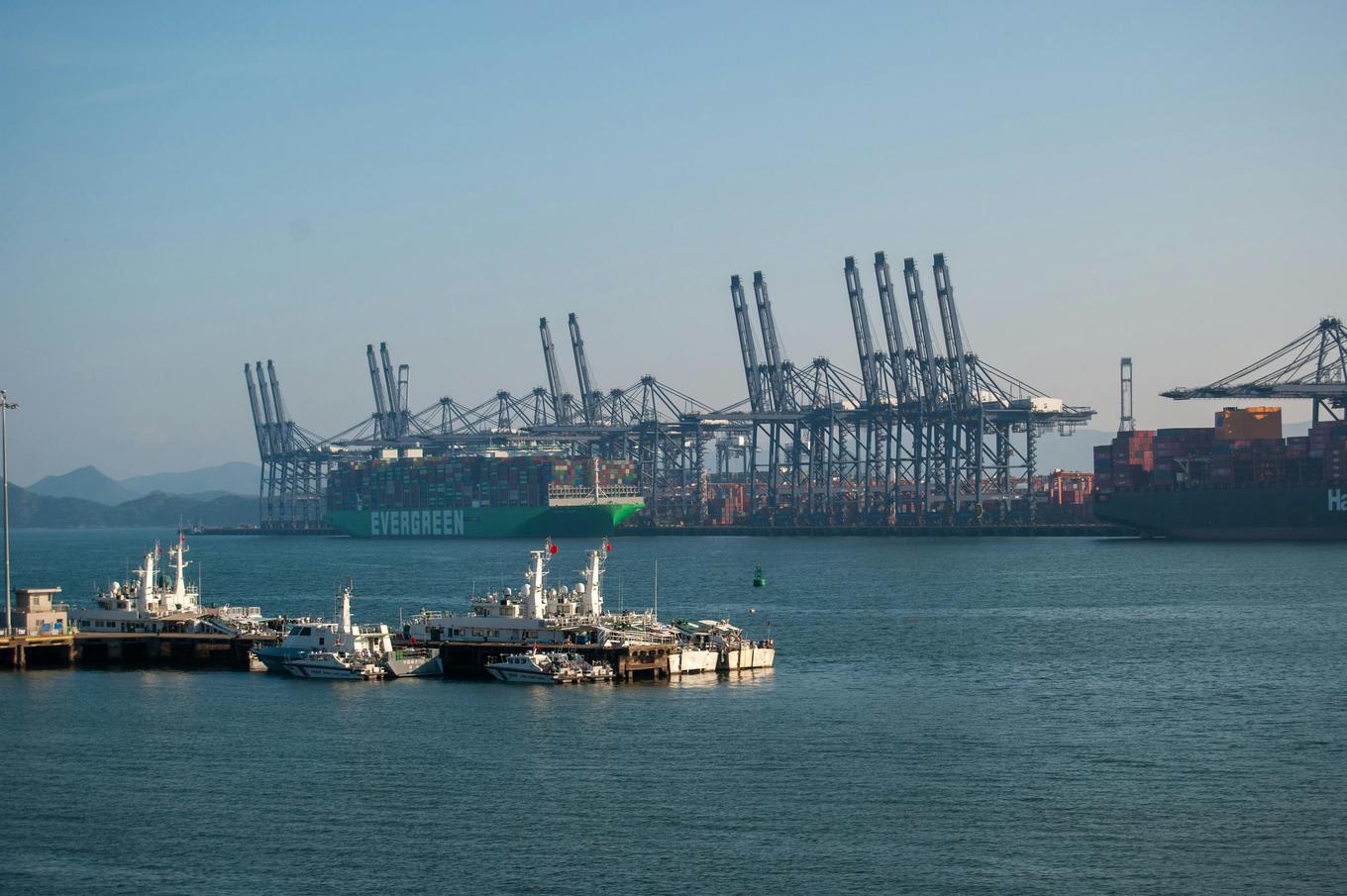- Shanghai Zhongshen International Trade Co., Ltd. - Two decades of trade agency expertise.
- Service Hotline: 139 1787 2118
On February 8, 2024, the Executive Committee of the Hengqin-Guangdong-Macao Deep Cooperation Zone and the Guangdong Provincial Government Hengqin-Guangdong-Macao Deep Cooperation Zone Office jointly issued the Announcement on the Closed Operation of the Hengqin-Guangdong-Macao Deep Cooperation Zone, marking the official closed operation of the Hengqin-Guangdong-Macao Deep Cooperation Zone (hereinafter referred to as the Cooperation Zone) from March 1, 2024. This move aims to further deepen Guangdong-Macao cooperation and promote regional economic integration. This article analyzes the regulatory provisions of the Cooperation Zones closed operation and its impact on relevant stakeholders.

I. Regulations and Rules of the Closure and Operation of the Cooperation Zone
Scope of the Cooperation Zone and Zoning Management
The implementation scope of the Cooperation Zone covers approximately 106 square kilometers, divided into the first line between Hengqin Island and the Macao Special Administrative Region and the second line between Hengqin and mainland China. Some areas, such as the University of Macau Hengqin Campus, are managed by the Macao Special Administrative Region Government, while other areas are subject to electronic perimeter surveillance.
Objects of Customs Supervision
In accordance with the Measures of the Customs of the Peoples Republic of China for the Supervision of the Hengqin - Macao Deep Cooperation Zone, the General Administration of Customs mainly supervises the means of transport, personnel, goods, etc. between the Cooperation Zone and Macao, and the Chinese mainland.
The specific objects of supervision include:
(1) Goods entering and leaving between the Cooperation Zone and Macao:These goods mainly involve trade with Macao, including goods in transit through the Cooperation Zone.
(2) Duty - free and bonded goods entering and leaving between the Cooperation Zone and the Chinese mainland:Refers to those goods that enjoy duty - free or bonded treatment according to specific policies.
(3) Goods declared for export from the Chinese mainland to the Cooperation Zone:Goods regarded as exports, enjoying correspondingExport Drawbackpolicies, etc.
(4) Articles released duty - free into the Zone through the open ports of the Cooperation Zone and then entering the Chinese mainland:The supervision of such articles when they enter the Chinese mainland again after entering the Cooperation Zone.
(5) Goods in the Cooperation Zone with incomplete customs formalities:Including goods that are transferred within the Cooperation Zone but have not completed the final customs declaration procedures.
3. First Line and Second Line Regulatory Principles
? Goods entering the Cooperation Zone through the first line are exempt from import tariffs, VAT, and consumption tax, except as explicitly required by laws and regulations.
? Duty-free or bonded goods entering mainland China through the second line shall undergo customs procedures in accordance with relevant regulations for imported goods, and goods sold domestically shall be taxed based on their actual inspection status.
Cargo Transfer within the Cooperation Zone and Preferential Taxation for Domestic Sales of Processed and Value - Added Goods
? For goods produced by enterprises within the Cooperation Zone containing imported materials, if the processed value - added reaches or exceeds 30%, when the goods enter the Chinese mainland from the Cooperation Zone, import duties are exempted.
? The specific definition and scope of application of the processed value - added reaching or exceeding 30% are clearly stipulated, and in specific cases, the exemption from import duties is not enjoyed.
Management and Tax Rebate of Goods Exported from the Chinese Mainland to the Cooperation Zone
? Goods entering the Cooperation Zone from mainland China through the second line are treated as exports and are eligible for VAT and consumption tax refund policies.
? Under special circumstances, some goods are not applicable to the export tax rebate policy. For example: export goods for which the Ministry of Finance and the State Taxation Administration stipulate that the value - added tax refund (exemption) and duty - free policies are not applicable. Other goods sold from the Chinese mainland to the Cooperation Zone that are not eligible for tax rebate. Goods purchased by enterprises whose tax rebate or duty - free qualifications have been cancelled.
Simplification of Customs Declaration Procedures
Simplified declaration procedures are implemented for certain duty-free and bonded goods entering or exiting the Cooperation Zone through the first line, including minimal and moderate filing management methods.
Minimal filing management applies to duty-free and bonded goods not subject to regulatory certificate management or mandatory inspection and quarantine. Minimal filing management allows consignors or their agents to submit simplified declarations by filling out a Filing List, reducing the number of required fields and improving declaration efficiency.
Moderate filing management applies to duty-free and bonded goods subject to regulatory certificate management or mandatory inspection and quarantine. Compared to the minimal method, the moderate method requires additional information such as license numbers and ports of origin when filling out the Filing List to ensure compliant entry and exit of goods.
Situations not applicable to simplified declarations
(1) The customs of the place of declaration is not Hengqin Customs
(2) The mode of transportation is not road transportation
(3) Goods that require inspection and quarantine certificates
(4) Bonded goods declared using the centralized declaration method
(5) Agricultural products subject to special safeguard measures applying for the application of preferential duty rates when leaving the Zone
II. Impact Analysis of the Closure and Operation of the Cooperation Zone
Impact on Enterprises
The closure and operation of the Cooperation Zone provides enterprises with new trade facilitation measures. In particular, the duty - free or bonded policies will greatly reduce the operating costs of enterprises and improve trade efficiency. At the same time, the preferential taxation policy for domestic sales of processed and value - added goods will encourage enterprises to carry out the processing and manufacturing of high - value - added products in the Cooperation Zone.
Impact on Trade
The simplified customs declaration procedures and clear supervision principles will accelerate the transfer speed of goods, promote the trade development between Guangdong and Macao, and deepen the regional economic integration.
3. Impact on Regional Economy
The closure and operation of the cooperation zone helps to form a new open - economy system at a higher level, attract foreign investment, and promote economic growth in Hengqin New Area and even the economic belt on the west bank of the Pearl River.
Related Recommendations
? 2025. All Rights Reserved. Shanghai ICP No. 2023007705-2  PSB Record: Shanghai No.31011502009912
PSB Record: Shanghai No.31011502009912










